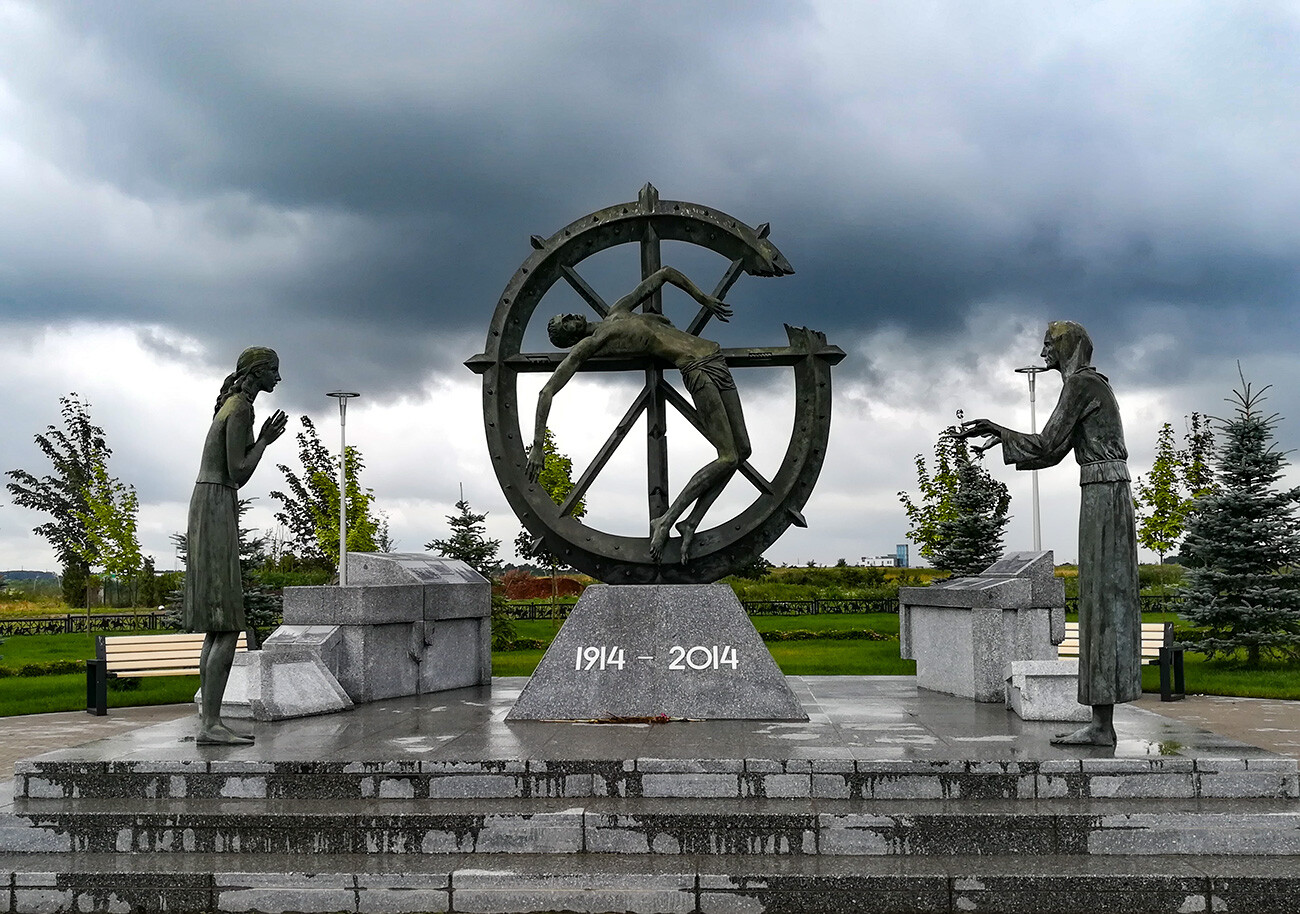How many WWI monuments are there in Russia & where are they?
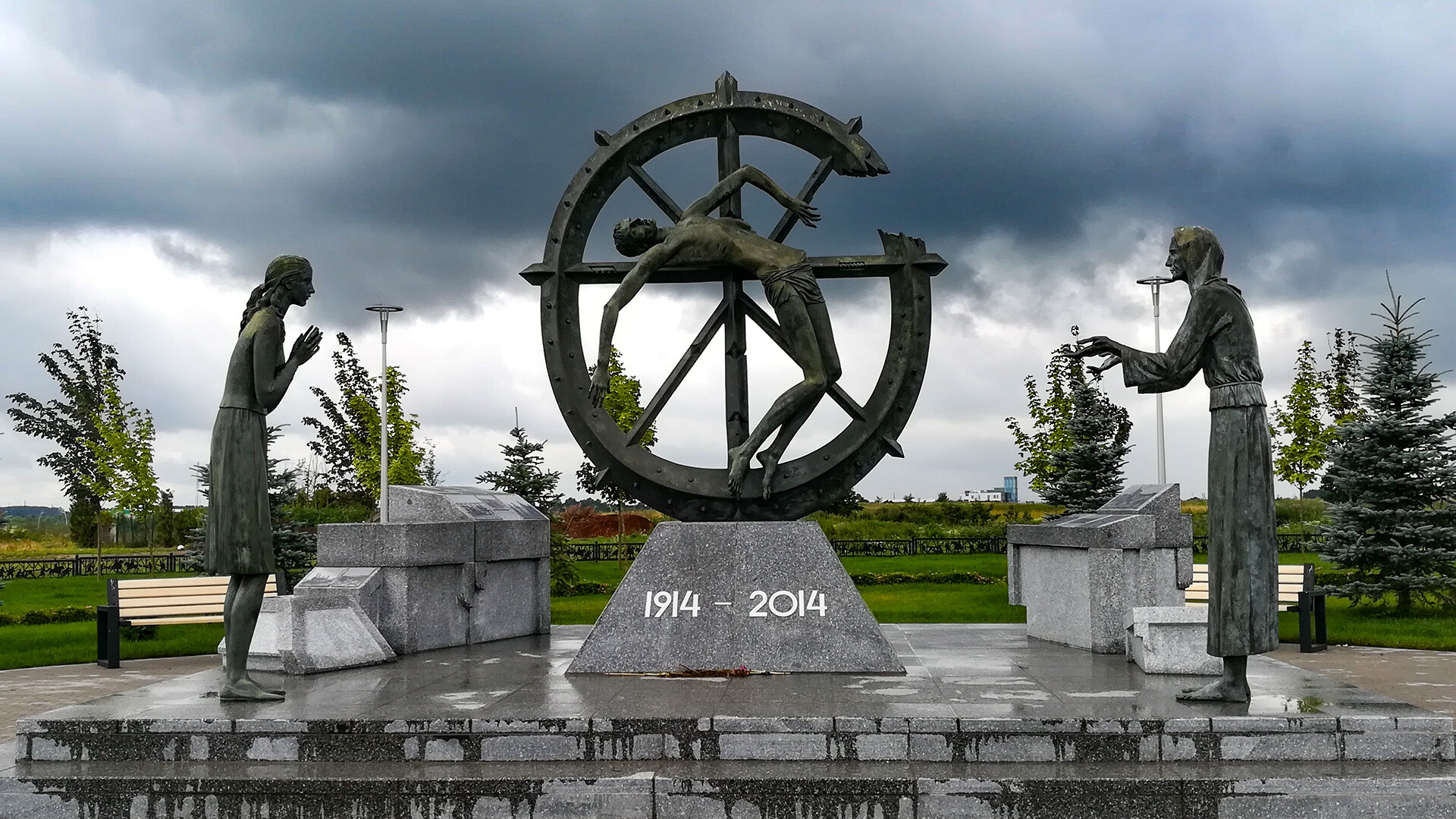
The monument to the heroes of World War I on Poklonnaya Hill in Moscow was erected in 2014 to mark the 100th anniversary of Russia's entry into this bloodshed. It consists of two elements: a bronze figure of a soldier on a high column and a multi-figure composition behind it, which features an officer ordering soldiers to attack against the background of the Russian national flag.
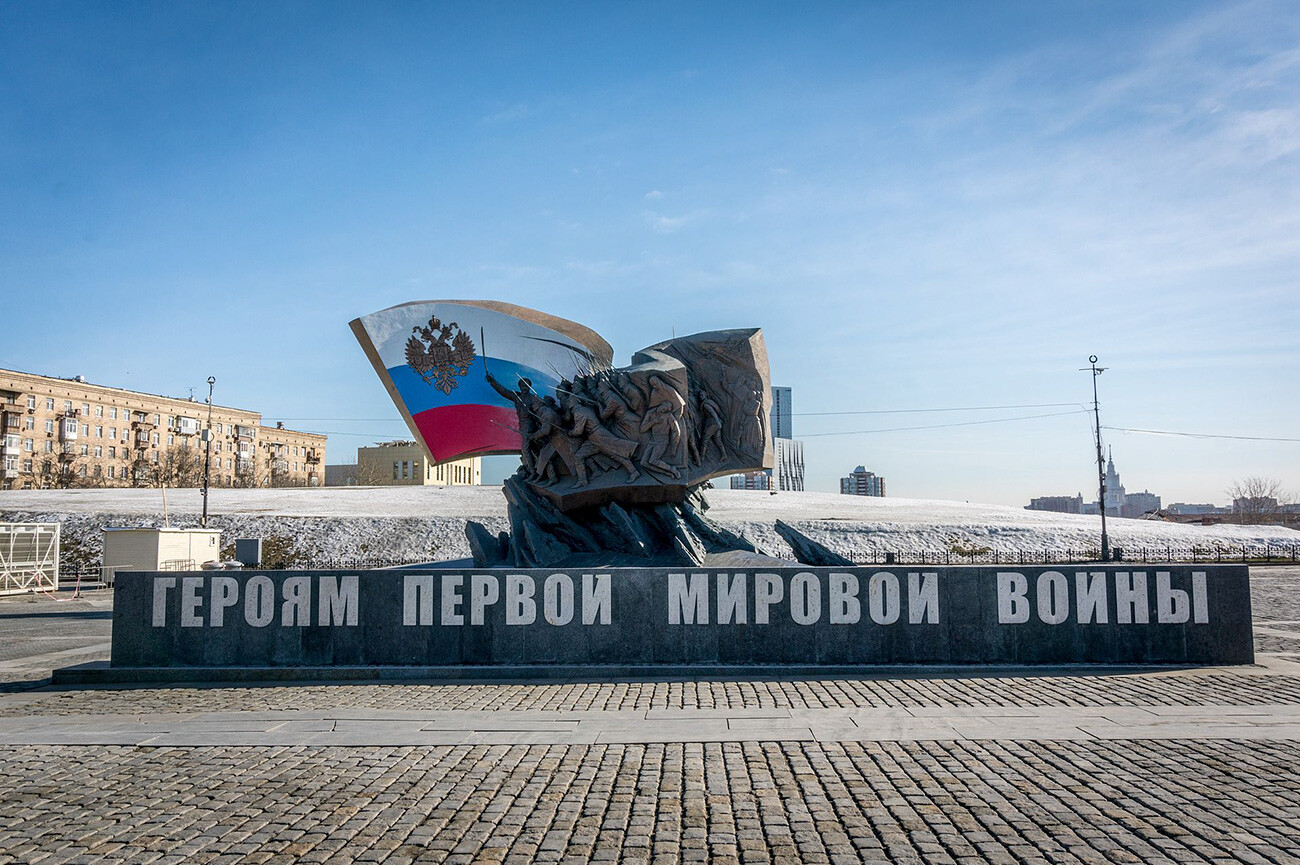
According to the creators of the monument, which was unveiled in Kaliningrad in May 2014, the figures of an officer, a soldier and a peasant are to symbolize the nationwide unity in the defense of their Motherland. The figure of a nurse attending to a wounded man also pays tribute to the feat of Russian women in that brutal conflict.
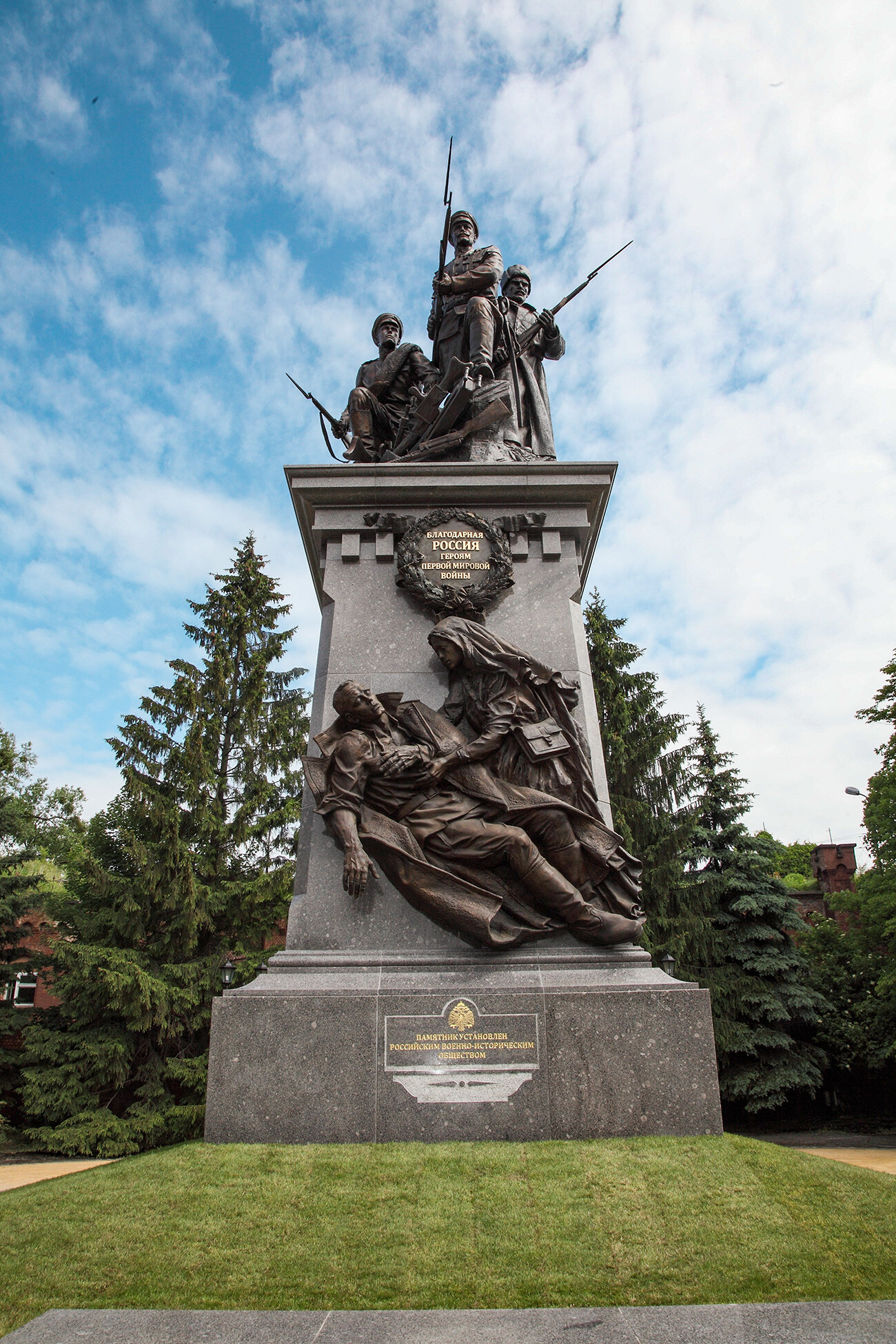
The monument ‘To the glorious sons of the Motherland – the Cossacks and Highlanders, heroes of the First World War’ in Krasnodar symbolizes friendship and mutual assistance of the Cossacks and Caucasus peoples in the struggle against the external enemy. About 100,000 Kuban Cossacks fought in the battles against the Germans, Austrians and Turks. The Highlanders, meanwhile, were not conscripted into the army, yet, many of them volunteered to go to the front anyway.
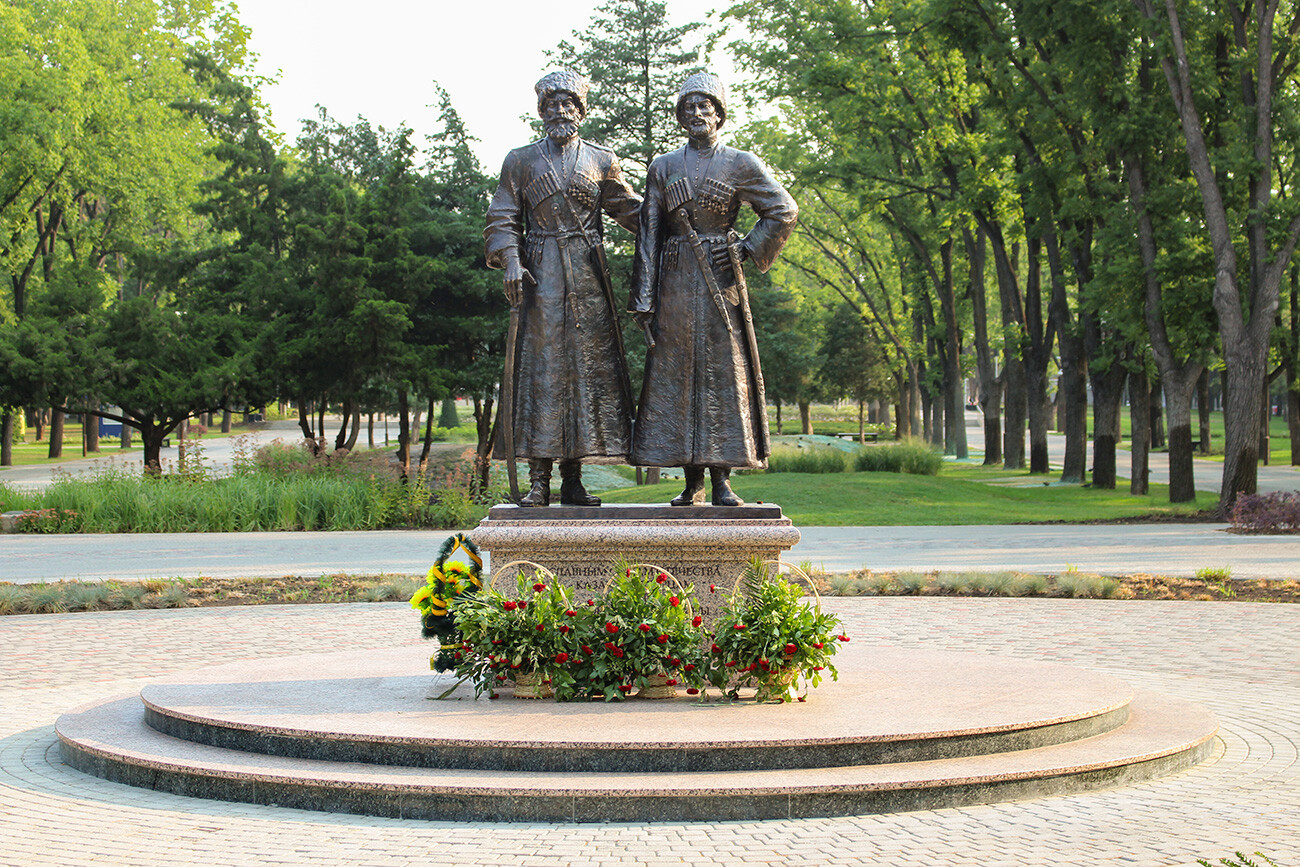
The anniversary of the outbreak of World War I was also remembered in 2014 in the city of Lipetsk. There, the monument is shaped as a 17-meter stele, which resembles the bayonet of a three-line rifle. On its top is the historical emblem of Russia – a double-headed eagle and, in the middle, you can see St. George's crosses (one of the most important military awards of the Russian Empire) depicted.
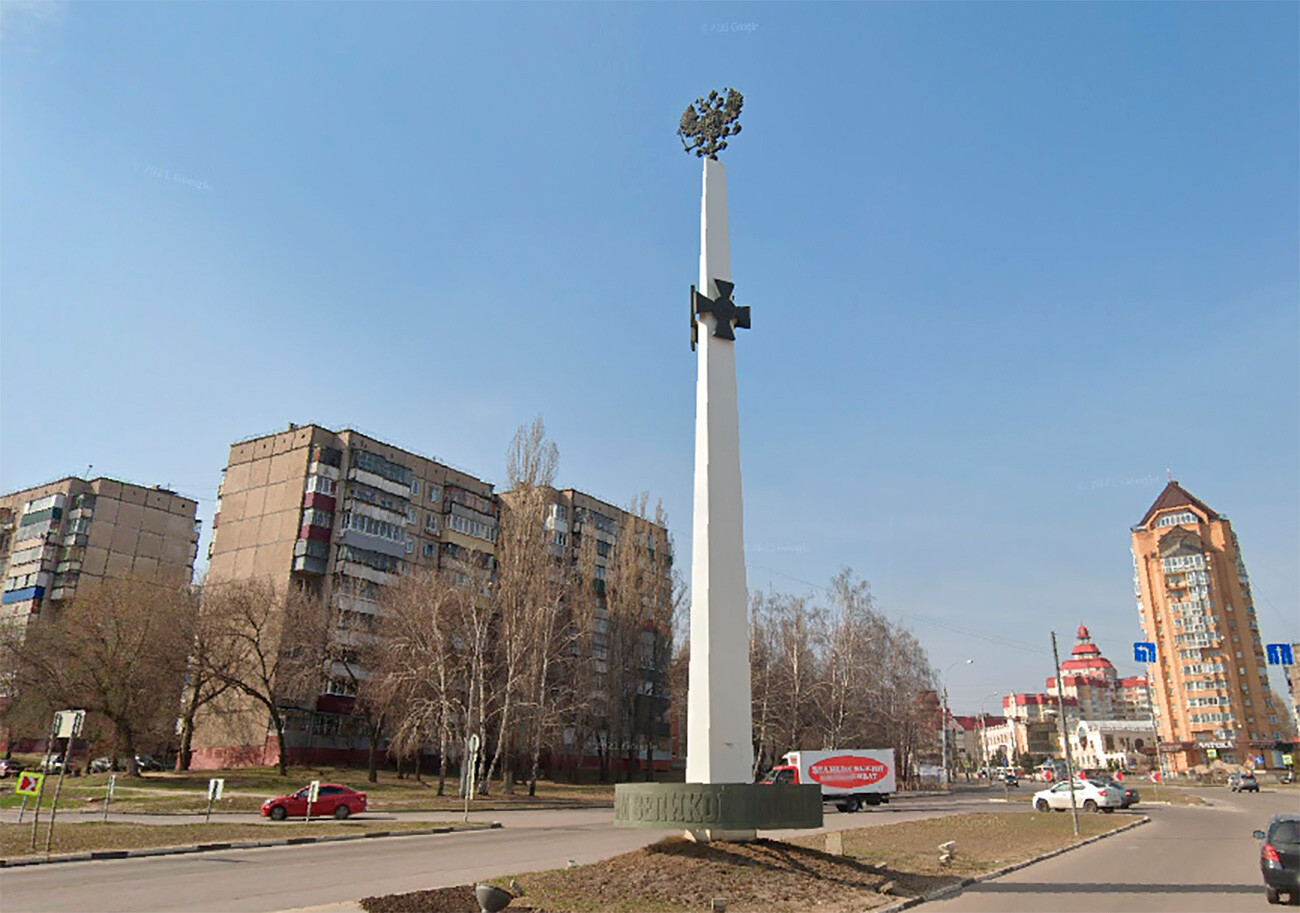
The monument in the city of Azov, Rostov Region, honors 125,000 Don Cossacks who took part in the First World War. About 37,000 of them were honored with a variety of awards for their outstanding bravery on the battlefield.
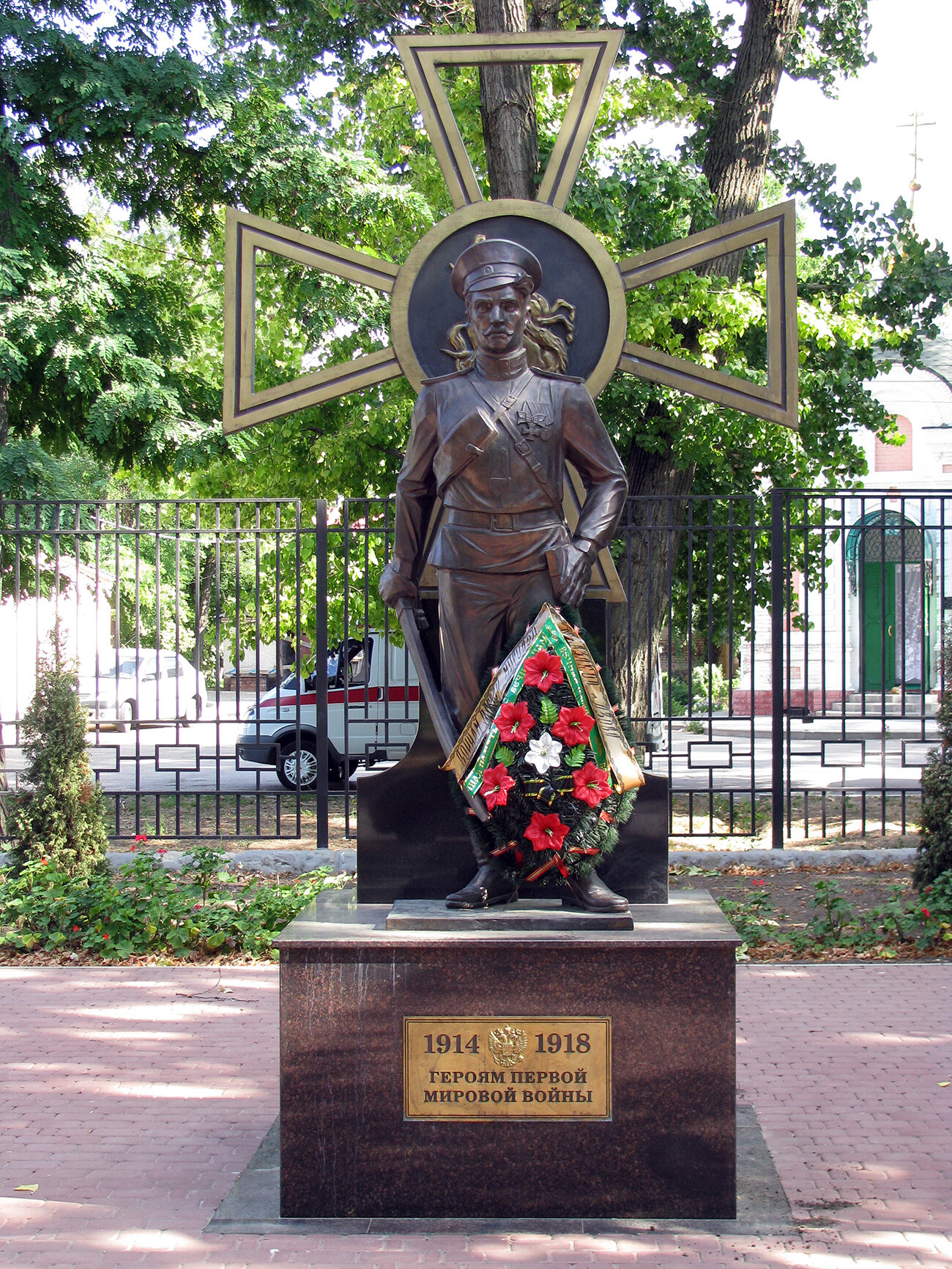
The monument in Pskov is dedicated to all fighters of the First World War, but especially to Pskov’s 11th Infantry Regiment and the Pskovites in other parts of the Russian Imperial Army. It features a soldier going into an attack with a rifle slung across his chest. Behind him is a battle flag with the image of the Virgin Mary and the Russian coat of arms.
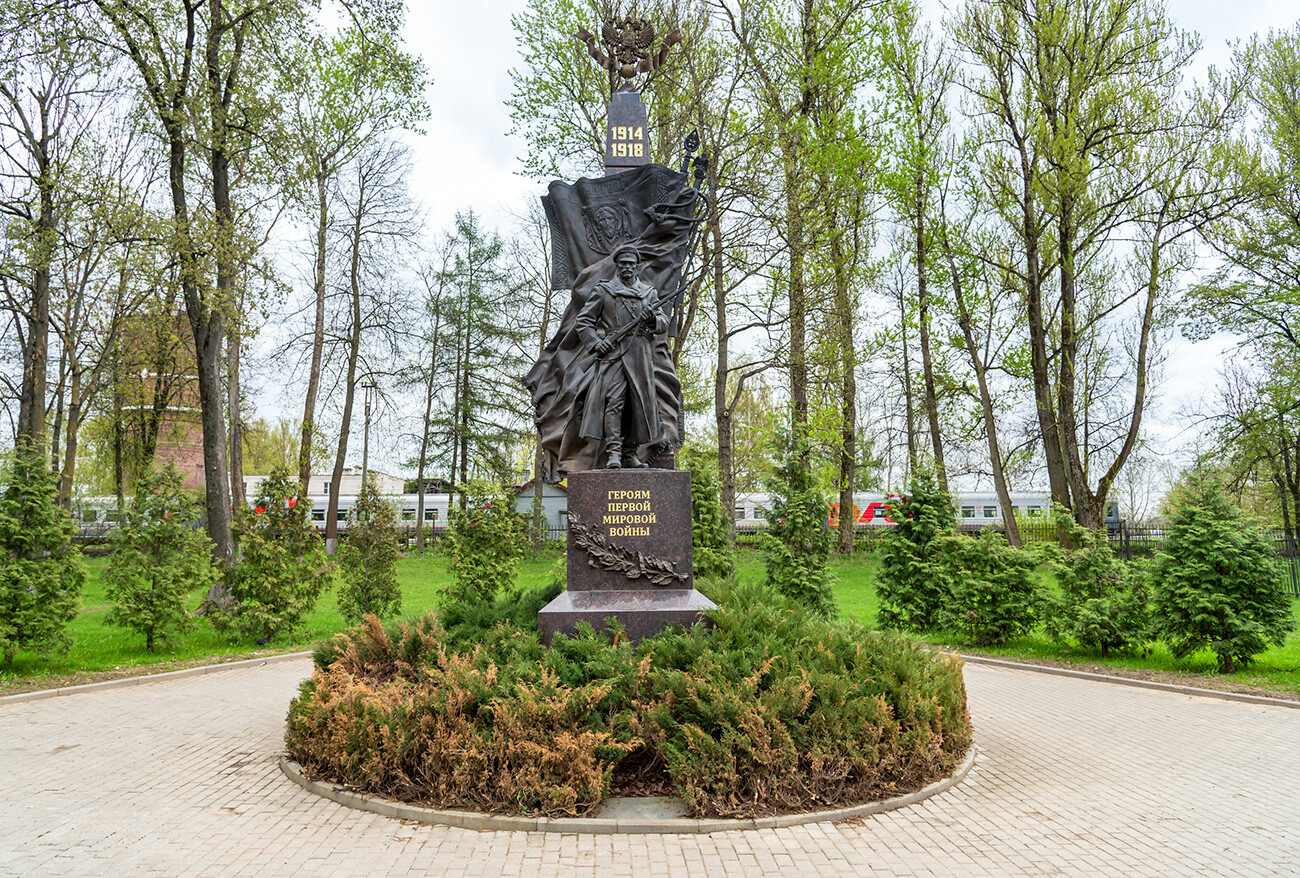
Located in the town of Gusev, Kaliningrad Region, the monument ‘In tribute to the forgotten war that changed the course of history’ is drastically different from the other monuments to the heroes of the First World War in Russia. In the center of the composition is a soldier crucified on the "wheel of fate". On his sides stand the inconsolable widow and mother, who stretch out their hands to him in despair.
The monument honors the memory of Russian soldiers who died on August 20, 1914, in the battle of Gumbinnen (as Gusev was called at that time). On that day, luck was on the Russian troops' side.
